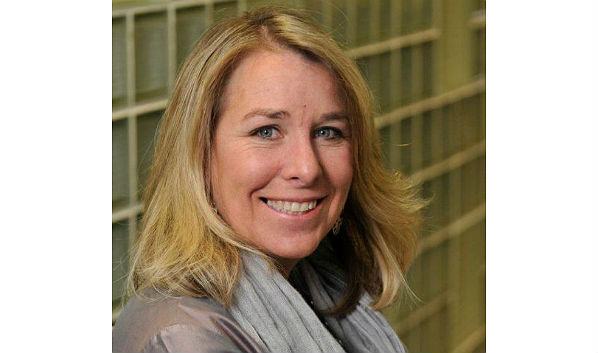Channel partners may be pumping the brakes on cloud, according to CompTIA’s Carolyn April.

 **Editor’s Note: This is one of a series of profiles featuring Channel Partners advisory board members. Meet April and the rest of the board by attending the Spring 2017 Channel Partners Conference & Expo. Learn more here.**
**Editor’s Note: This is one of a series of profiles featuring Channel Partners advisory board members. Meet April and the rest of the board by attending the Spring 2017 Channel Partners Conference & Expo. Learn more here.**
Channel partners might be pumping the brakes on cloud, according to CompTIA’s Carolyn April.
April, who serves as CompTIA’s senior director of industry analysis, gave us a sneak peak of her company’s upcoming 2016 State of the Channel study, which shows a startling shift in attitudes about cloud computing.
“There’s been a bit of a reality check when it comes to cloud among the channel companies,” she said.{ad}
April repeated 2015 survey questions about how partners view cloud computing’s impact on the channel. Last year, 63 percent said the impact was extremely positive; this year, the number has dropped to 37 percent. In other words, fewer partners expressed extreme enthusiasm for cloud.
This isn’t the first time we’ve noticed this trend. CompTIA on Monday announced the results of its Trends in Cloud Computing study, which showed a year-over-year decrease in businesses using cloud for mission-critical tasks.
April said that’s not because cloud momentum is slowing, but rather a result of partners gaining more familiarity and experience with the technology.
“Whenever you roll your sleeves up and get a little bit more involved with a new technology or new anything, frankly, you start to see the warts and all. You start to realize, ‘Maybe I need to pull back. I jumped into this too fast. We need to rethink why we went into this area with cloud and maybe we’d be better off going over here.’ I think there’s a lot of that second-guessing that’s maybe going on in the channel right now,” she said.
And it’s not just the partners gaining more knowledge. End users are becoming more comfortable with cloud and beginning to take steps on their own.
“They’re realizing that there are many applications out there that they can access on their own, like a vending machine almost,” she said.
April said partners need to put on their “big boy pants” and be willing to change their role, which is often thought of as a reseller.
“Yes, they can resell SaaS applications, and there are plenty of folks doing that, but I think the more critical area where they’ll be able to make the most money and be most sticky with the customer is to be …
{vpipagebreak}
… an adviser around the types of cloud applications that are out there, the types of cloud solutions that are available, and help vet those solutions,” she said.
April’s professional career has undergone major adaptations while transforming from a newspaper reporter to a senior technology analyst.
She graduated from Northwestern University with Bachelor’s and Master’s Degrees in journalism before cutting her teeth as a managing editor at a Massachusetts paper. She went on to report for the (Quincy) Patriot-Ledger before, as she puts it, “the siren of tech called.”
She moved to InfoWorld to serve as a news editor in 1996, enthralled by the higher salary but relatively unaware of the burgeoning technologies that would dominate the next decade.{ad}
“It was a major learning curve,” she said. “I honestly almost regretted the job hop. The first three months were really rough. I was thinking, ‘I made a bad decision here,’ despite the salary. In retrospect, I made the best decision ever, because I wouldn’t want to be in the newspaper business right now.”
She rose to the rank of executive editor by the end of 2003, and it was then when she made her next big career change. She got a job with CMP Media’s VAR Business publication, where she encountered the channel for the first time. Once again, it was a learning curve.
“I learn new things about the channel every day, because it keeps changing,” she said.
She spent a year at Channel Insider before landing at CompTIA, where she shifted her role from journalist to analyst — a move she said is not uncommon in the technology industry.
Reflecting on the history of the channel and her own career, April said business owners in the channel should be taking up a new initiative: getting more young people into the industry. The industry is aging, and it is not being compensated by an influx of youth.
She said she once encountered a young, bright entrepreneur who was turning heads in the channel. But when asked who his peers were, he said there was no one.
“He said, ‘If any of you could find me a 20-something-age person who is running a channel company or wants to run a channel company, please introduce them. I’m lonely,’” April recalled.
Bringing in millennials fits in with the idea of business transformation that she said is constantly preached but often ignored. She said maybe this is because business leaders aren’t interested in looking years into the future. April said it’s crucial to prepare the next generation of the industry.
“I don’t think the channel is in danger if they don’t all transform their business, but I think the channel could be in danger if they don’t have any new blood that fills the void when the older presidents and owners of these companies decide to retire,” she said.
Read more about:
AgentsAbout the Author(s)
You May Also Like


